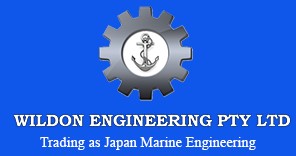5 Most Common Issues with Marine Engines
Blog | August 8th, 2022Marine vessels can only run optimally if they are equipped with a fully functional marine engine. Engines used by marine vessels are often comprised of components that will provide them with the needed energy for their operations.
One of the components of marine engines is the bedplate, which is intended to resist the constant force from the engine and cope with constant fluctuation. The crankshaft is another component designed to transmit power to the propeller shaft. Camshaft, alternatively, regulates the operation of the inlet, exhaust, and fuel injector within the engine. Other marine engine parts include the piston, piston rings, liner, frame box, connecting rod, and turbocharger.
Before marine engines are installed, manufacturers test them for quality assurance purposes. They can still, however, develop issues after using them for a long time. If you currently own a marine vessel, here are some common marine engine issues you may encounter.
1. Failure to Turn on Air
One issue with your marine engine that you may encounter is its failure to turn on air. This problem may be present if the starting air receiver has low air pressure, which is often caused by the absence of pressure in the control air system. The lack of air may also be due to the shutdown of some valves on the lines, erroneous setup of control selectors, incorrect adjustment of air distributor, and electrical/pneumatic faults.
2. Trouble Starting on Fuel
Another problem you may encounter with your marine engine is trouble starting on fuel. This issue is primarily caused by three things: faulty governors, slow manoeuvre gears, and unaerated stop signal puncture valves. Alternatively, your problem with fuel can also be caused by poor adjustment of manoeuvring gear, clogged fuel-oil filters, low governor pressure setting, inappropriate fuel pump timing, stuck fuel rack, and the existence of water or air in the fuel line.
3. Slow Turning of Engine
You may have commanded your marine engine to turn on air, but if it does not gain enough rpm and continues to turn on slow speed, it may mean that it requires proper upkeep. This problem may occur if the adjustment of the slow turning valve is not set properly. It may also occur due to faulty starting air valves, incorrect timing of starting air distributor, and failure to turn off slow turning manual control switch.
4. Erratic Exhaust Temperature
You may have managed to keep your engine running. But if you noticed an erratic fluctuation of its exhaust temperature, it may need to be serviced as soon as possible. A rise in exhaust temperature across all units is often caused by high scavenge air temperature and after burning. On the other hand, exhaust temperature that falls below its recommended level means that the fuel oil system has non-fuel fluid. It may also be caused by low scavenge air temperature.
5. Emission of Black Smoke
One more issue with your marine engine that you may encounter is the emission of black smoke from the exhaust. Black smoke emissions may subject your marine vessel to hefty fines. So, if your marine engine does emit black smoke, you must have it checked right away. One cause of black smoke emission is the existence of defective fuel injectors. This issue can also be caused by the cold start of the engine, poor fuel quality, overloading, and choked air filters.
For marine engine servicing needs especially for Yanmar Diesel Marine engines, you may contact us at Wildon Engineering.
Optimized by NetwizardSEO.com.au
Recent Posts
- Yanmar Marine Compressors: Applications in Engine Starts, Valves, and Safety Systems
- Water vs Oil in Stern Tube Bearings: The Cost & ESG Truth Shipowners Can’t Ignore
- Yanmar Turbochargers: How Correct Spec-Matching Supports Lower SFOC and Prevents Surge
- Yanmar Diesel Generators: Planned vs Predictive Maintenance Strategies for Remote Operations
- Mareflex SOLAS Marine Tapes: Safety Applications on Marine Vessels
- Yanmar Propulsion Systems: FPP vs CPP Propellers for 6EY and 6N Series Fuel Efficiency
- Mitsubishi K.K. Purifier Separator: The Key to Cleaner Fuel and Smoother Operations
- Kemel Air Seal Retrofits: Leak-Free Stern Tube Seals and Reduced Lube-Oil Risk
- Yanmar Auxiliary Generators: Sizing for Reefers, Hotel Loads, and Dynamic Positioning Systems
- Water Lubricated Stern Tube Bearing (EVR): Proven Technology for Smooth and Quiet Operations
